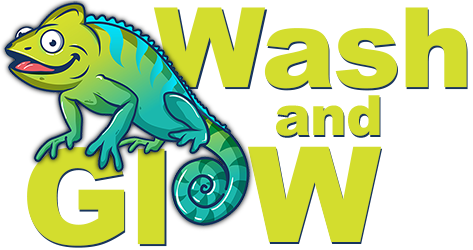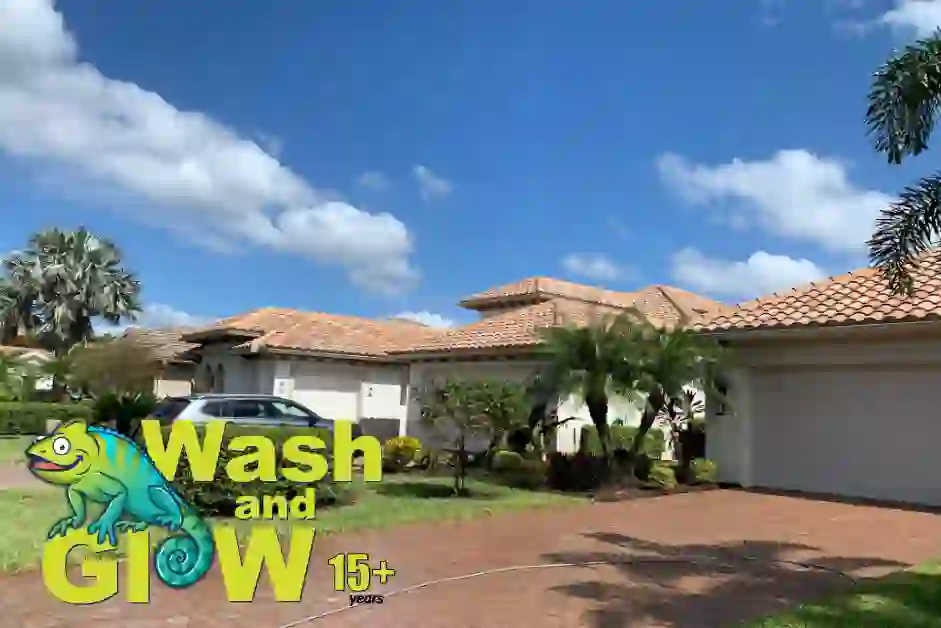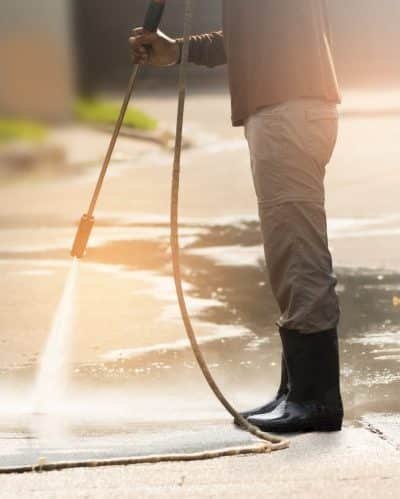Keeping your driveway clean can feel like a constant battle against dirt, grime, oil stains, and mold. A spotless driveway not only boosts curb appeal but also helps maintain the durability of the surface. One of the most effective tools for achieving this is a driveway pressure washer. These machines deliver high-pressure water streams that can clean even the toughest stains, saving you time and effort compared to traditional scrubbing methods.
The importance of a clean driveway goes beyond aesthetics. Oil stains, moss, and algae can degrade the surface over time, leading to cracks and costly repairs. Regular cleaning can extend the life of your driveway while also creating a safer surface to walk on, particularly during wet weather. Whether you have a concrete, asphalt, or paver driveway, a pressure washer can handle the job with ease.
This comprehensive guide explores the benefits of using a driveway pressure washer, the types of machines available, the step-by-step process to use them, and tips for choosing the right one. We’ll also cover important safety measures and maintenance tips to keep your pressure washer in top shape. By the end of this article, you’ll be equipped with all the knowledge you need to keep your driveway looking brand new.
Let’s dive into the world of driveway pressure washers and uncover why they’ve become the go-to solution for homeowners and professionals alike.
Types of Driveway Pressure Washers
Gas vs. Electric Pressure Washers
When it comes to driveway pressure washers, you’ll primarily encounter two main types: gas-powered and electric-powered models. Both have distinct advantages depending on your cleaning needs.
Gas Pressure Washers:
Gas-powered pressure washers are ideal for large driveways or commercial use. They offer higher pressure levels, typically ranging from 2,800 to 4,000 PSI (pounds per square inch), making them perfect for removing deep-set stains like oil and grease. However, they can be noisy and require more maintenance, such as regular oil changes and fuel refills.
Electric Pressure Washers:
Electric models are more suitable for smaller or medium-sized driveways. With a typical PSI range of 1,500 to 2,300, they provide enough power for most residential cleaning tasks. They are quieter, lighter, and require minimal maintenance compared to gas models, making them a popular choice among homeowners.
Cold Water vs. Hot Water Pressure Washers
Another distinction is between cold water and hot water pressure washers.
Cold Water Pressure Washers:
These are the most commonly used models for driveway cleaning. Cold water is effective for removing dirt, mold, and loose debris. They are generally more affordable and easier to handle for casual use.
Hot Water Pressure Washers:
Hot water pressure washers are more effective for heavy-duty cleaning, such as breaking down grease or oil stains. They use heated water, which enhances cleaning efficiency, especially when combined with detergents. These models are often used by professionals for industrial cleaning.
Choosing the Right Nozzle
Nozzles play a critical role in the cleaning process, as they control the spray pattern and pressure. The most common nozzles include:
- 0-degree nozzle: Provides the most concentrated and powerful stream, ideal for tough stains but should be used carefully to avoid surface damage.
- 15-degree nozzle: Great for removing paint, grime, and dirt.
- 25-degree nozzle: Suitable for general cleaning tasks like washing away dirt and debris.
- 40-degree nozzle: Provides a wider spray for delicate surfaces or rinsing.
How to Use a Driveway Pressure Washer
Preparing Your Driveway
Before starting, you’ll need to prepare your driveway to ensure optimal results.
Clearing Debris:
Remove any loose debris, such as leaves, rocks, or branches. These can interfere with the cleaning process and potentially damage the pressure washer.
Pre-treating Stains:
For oil stains or other stubborn spots, apply a degreaser or driveway cleaning detergent to the affected areas. Let it sit for 10–15 minutes before pressure washing to loosen the grime.
Protecting Nearby Areas:
Cover surrounding plants, walls, or delicate surfaces with plastic sheeting to prevent accidental damage.
Operating the Pressure Washer
Using a pressure washer effectively involves following the proper steps to avoid surface damage.
Step 1: Select the Right Nozzle:
Start with a wider spray nozzle, such as a 25-degree or 40-degree option, and gradually switch to a more concentrated nozzle for stubborn stains.
Step 2: Test on a Small Area:
Before washing the entire driveway, test the pressure washer on a small, inconspicuous area. This helps you determine if the pressure is suitable for the surface.
Step 3: Work in Sections:
Divide your driveway into manageable sections and clean one area at a time. Use overlapping strokes to ensure even coverage and avoid streaks.
Post-Cleaning Maintenance
After you’ve finished, take a few minutes to clean and store your equipment.
Flush the System:
Run clean water through the pressure washer to remove any residual detergent or debris.
Inspect the Machine:
Check for any visible damage or worn-out parts, such as hoses or nozzles, and replace them if necessary.
Store Properly:
Drain excess water, coil the hose, and store the pressure washer in a dry, cool location to prevent rust or freezing.
Safety Tips for Using a Pressure Washer
Protecting Yourself
Operating a pressure washer can be hazardous if proper precautions aren’t taken.
Wear Protective Gear:
Always wear safety goggles, gloves, and non-slip footwear to protect yourself from high-pressure water and flying debris.
Avoid Direct Contact:
Never point the spray wand at yourself, others, or animals. The intense pressure can cause serious injuries.
Handle Detergents Carefully:
If using cleaning solutions, read the manufacturer’s instructions and avoid contact with skin or eyes.
Protecting Your Driveway
To avoid damaging your driveway surface, follow these precautions:
Use Appropriate Pressure:
Concrete can withstand higher PSI levels than asphalt or pavers. Ensure your machine’s pressure is suitable for the material.
Keep the Wand Moving:
Holding the nozzle in one spot for too long can cause etching or discoloration.
Mind the Angle:
Hold the spray wand at a 45-degree angle to maximize cleaning efficiency without causing damage.
Protecting the Machine
Proper usage and care extend the life of your pressure washer.
Check for Leaks:
Inspect the hoses and connections for any leaks before starting.
Don’t Overwork the Engine:
If you’re using a gas-powered model, avoid running the engine for extended periods without breaks.
Use Clean Water:
Debris or dirt in the water supply can clog the system and reduce performance.
Tips for Choosing the Best Driveway Pressure Washer
Determine Your Cleaning Needs
Evaluate the size and material of your driveway to determine the right PSI and GPM (gallons per minute) rating.
Smaller Driveways:
For small or lightly soiled driveways, an electric pressure washer with 1,500–2,000 PSI and 1.2–1.5 GPM is sufficient.
Larger Driveways:
For large or heavily stained surfaces, opt for a gas-powered model with at least 2,800 PSI and 2.3–2.5 GPM.
Check Features and Accessories
Modern pressure washers come with various features that enhance usability.
Adjustable Pressure Settings:
Machines with adjustable settings allow you to customize the pressure for different surfaces.
Detergent Tank:
Built-in detergent tanks make it easier to apply cleaning solutions.
Additional Attachments:
Look for accessories like surface cleaners, which are circular attachments designed specifically for driveways.
Budget and Warranty
Pressure washers range from $150 to $500 or more. Consider your budget, but also check for warranties that cover repairs or replacements.
Maintaining Your Driveway After Pressure Washing
Seal the Surface
After cleaning, consider applying a sealant to your driveway to protect it from future stains and wear. Sealants create a barrier that repels water, oil, and dirt.
Schedule Regular Cleaning
Routine cleaning every few months can prevent buildup and make the job easier over time.
Avoid Harsh Chemicals
Use eco-friendly detergents to clean your driveway. Harsh chemicals can damage the surface or harm nearby plants.
FAQs
How often should I pressure wash my driveway?
It’s recommended to pressure wash your driveway every six months. However, if you notice heavy staining, moss, or algae buildup, you may need to clean it more frequently. Regular maintenance prevents dirt from becoming ingrained in the surface.
Can I use a pressure washer on a paver driveway?
Yes, but you should use a lower pressure setting and avoid concentrated nozzles like the 0-degree option. Pavers are more delicate than concrete and can shift if too much pressure is applied. A 25-degree nozzle is ideal for pavers.
What detergent works best for driveway cleaning?
A degreaser or detergent specifically designed for driveways is ideal. Look for biodegradable, non-toxic solutions to avoid harming nearby vegetation or contaminating water runoff.
Is it safe to pressure wash an asphalt driveway?
Yes, but you need to use a lower PSI (under 2,500) to avoid damaging the softer surface. Keep the wand moving to prevent grooves or marks from forming.
Why is my pressure washer losing pressure?
This could be due to clogged nozzles, a dirty water filter, or a faulty pump. Check these components and clean or replace them as needed. Regular maintenance helps prevent this issue.


